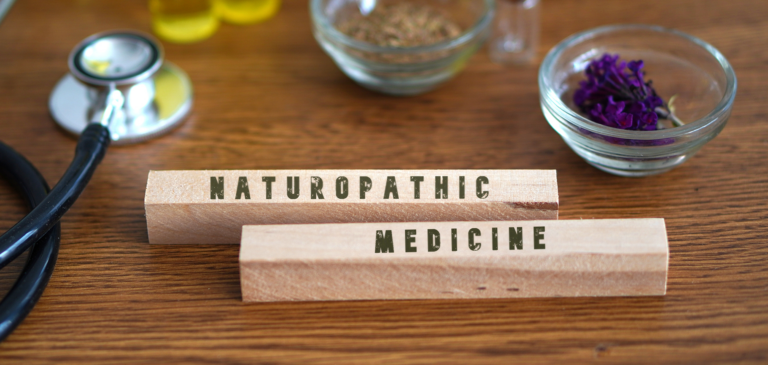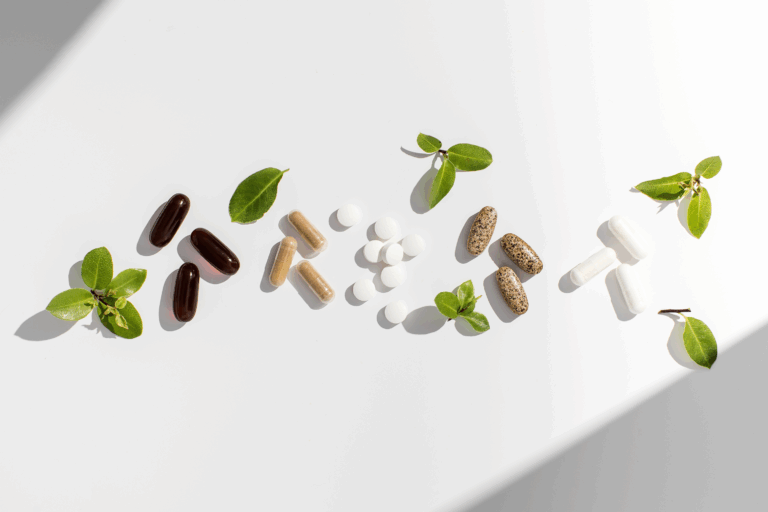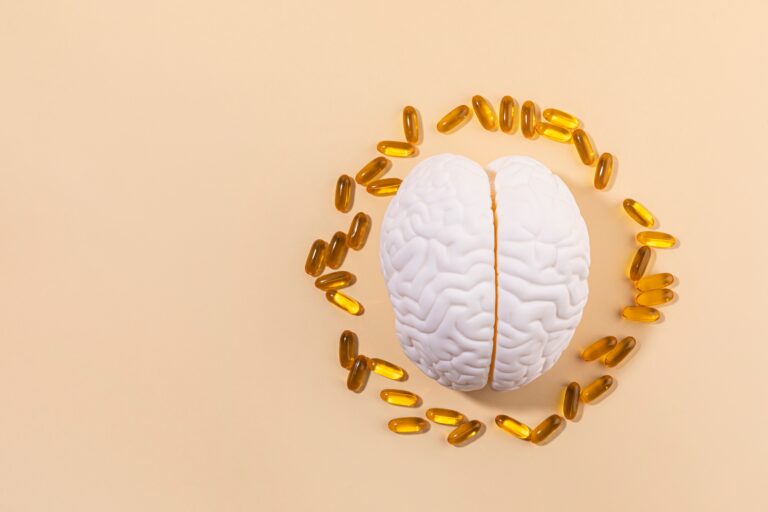Whole Food Support for Thyroid Health
Summary
The thyroid gland is involved in nearly every process in the body through the actions of thyroid hormones. Iodine is required for the production of thyroid hormones, and when iodine is deficient, thyroid dysfunction can occur. Consuming whole-food sources of iodine and antioxidants like kelp and alfalfa can support thyroid health and function.
The thyroid gland, a small organ located in the neck, is vital to many fundamental biochemical processes in the body. It is an endocrine gland that regulates metabolic processes via thyroid hormone throughout the entire lifespan.1 Iodine, found in high levels in foods like kelp, is crucial to thyroid status, as are whole-food sources of antioxidants like alfalfa. Including these and other whole foods as support for thyroid health can contribute to a balanced diet, potentially improving thyroid function and promoting overall well-being.
Understanding the Thyroid Gland
The thyroid gland helps maintain homeostasis, regulates growth and development, and promotes normal function of the reproductive, nervous, and cardiovascular systems.2 It does so primarily through the actions of thyroid hormone and the hypothalamic-pituitary-thyroid axis.2 The hypothalamus produces thyrotropin-releasing hormone (TRH), which stimulates the anterior pituitary gland to secrete thyroid-stimulating hormone (TSH).3 TSH then signals the thyroid gland to synthesize thyroid hormones.3 As plasma levels of thyroid hormones increase, negative feedback mechanisms inhibit the release of TSH to slow the production of thyroid hormones.3
If any of these processes becomes imbalanced, thyroid disorders can occur. The most common thyroid disorders include hyperthyroidism and hypothyroidism, marked by excess or reduced production and/or circulation of thyroid hormone, respectively. Goiter, characterized by an enlarged thyroid gland, is another thyroid disorder and is most often caused by a deficiency of iodine, a critical component of thyroid hormones. When iodine is lacking, the thyroid will grow to try to take in as much iodine as it can. Other thyroid issues include autoimmune thyroid conditions such as Graves’ disease and Hashimoto’s thyroiditis, as well as thyroid cancers.2
Oxidative balance is a critical element of thyroid health. Reactive oxygen species (ROS) are required for the initial steps of thyroid hormone synthesis; however, constant exposure to ROS can result in tissue damage.3 Oxidative stress can also cause damage to thyroid cells and interfere with the synthesis of thyroid hormone.3 Because thyroid hormone increases the rate of metabolic reactions, resulting in increased oxygen consumption and respiratory rate, it naturally produces ROS as a byproduct, further contributing to oxidative stress.3 Additionally, both hypothyroidism and hyperthyroidism can further exacerbate redox imbalance by reducing antioxidant system activity or increasing ROS generation, respectively.3
The Role of Iodine in Thyroid Health
Iodine is critical to thyroid health as a central component of the thyroid hormones triiodothyronine (T3) and thyroxine (T4).1 Of the 10 to 20 milligrams of iodine found in the body, over 70 percent is found in the thyroid gland.4 Through a series of steps, iodine is incorporated as part of the structures that form T3 and T4 which are released into the bloodstream.1 While both T4 and T3 are considered thyroid hormones, the thyroid gland primarily produces T4 which requires conversion to the active form T3.3
The body requires daily intake of iodine and without adequate iodine to produce thyroid hormone, thyroid function becomes impaired, leading to thyroid disorders.2,5 While most people maintain sufficient iodine intake, mild to moderate deficiency occurs in both industrialized and non-industrialized countries.4 With mild deficiency, the thyroid gland can adapt and maintain thyroid hormone production, but over time, this leads to further damage to the thyroid gland along with dysfunction.2 Mild iodine deficiency can appear as hyperthyroidism whereas severe deficiency more commonly presents as hypothyroidism due to the absolute lack of iodine.2
Iodine deficiency also contributes to impaired thyroid function due to its role as an antioxidant. Iodine inhibits the production of hydrogen peroxide, a major source of ROS.2 When iodine is lacking, excess hydrogen peroxide can form and increase ROS, which leads to mutations in genes associated with thyroid cell growth.2 This in turn promotes the synthesis of thyroid hormone and decreases TSH, altering thyroid function.2 Alternatively, too much iodine can also cause thyroid issues, including goiter, thyroid autoimmunity, hypothyroidism, and hyperthyroidism.5
Iodine is naturally found in marine foods like kelp and seaweed due to the high iodine levels in seawater.4,5 It is also found in some whole grains, although levels can vary based on soil iodine levels.1,4 While most Americans obtain adequate iodine primarily through iodized salt, levels have declined during the past 30 years.6 In addition to iodine, the thyroid gland also requires several micronutrients for proper function, including selenium, zinc, and magnesium.2
| Iodine, found in high levels in foods like kelp, is crucial to thyroid status, as are whole-food sources of antioxidants like alfalfa. Including these and other thyroid-supporting foods as part of a balanced diet can optimize thyroid health and overall well-being. |
Kelp for Whole-food Iodine
Kelp is a type of seaweed commonly consumed throughout Asia that is an excellent source of iodine, with one gram (dry weight) providing 2,500 to 10,000 micrograms.6 Other varieties of seaweed, including green and red, contain about 20 to 200 micrograms per gram dry weight, much lower than kelp.5 Importantly, iodine content can vary based on factors such as location, bioavailability, and cooking method.5 The high iodine content not only supplies the thyroid gland with critical building blocks of thyroid hormones but also functions as an antioxidant, promoting redox balance in the thyroid.5 Kelp also contains other essential vitamins and minerals, including iron, magnesium, and vitamin B12. In supplemental form, as is common in the United States, kelp is dried, ground up, and encapsulated to provide inorganic iodine salts as well as organically bound iodine compounds.6
Benefits of Alfalfa for Thyroid Health
Known as the “father of all foods,” alfalfa has a long historical use in Ayurvedic medicine for the treatment of various conditions spanning from the GI tract to the central nervous system.7 It contains many different phytochemicals, including flavonoids and phenolic compounds, along with digestive enzymes, minerals, and organic acids.7 It also supplies anti-inflammatory phytonutrients and antioxidant minerals and vitamins, which support redox balance in the thyroid gland, promoting thyroid health and function.7
Integrating Kelp and Alfalfa into the Diet
For individuals looking to increase their whole-food iodine intake, kelp can be incorporated into the diet as a component of soups and stews, using kelp flakes for seasoning, blending into vegetable juice, or eating raw. Because kelp provides a mega-dose of iodine, it is important to limit consumption to once or twice a week, depending on the dose and other foods consumed.5 Similarly, alfalfa can be enjoyed raw in the form of sprouts on sandwiches, salads, and stir-fries. The leaves can also be used as a raw ingredient, sauteed, or steeped as a tea.
A well-balanced diet is critical for optimal thyroid health. Iodine is a key component of thyroid hormone synthesis but not the sole micronutrient involved in promoting thyroid health.1 Many other micronutrients and bioactive compounds support thyroid function by maintaining oxidative balance and enzyme function. For individuals seeking whole-food support for the thyroid gland, kelp is an excellent source of iodine, while alfalfa contains many phytonutrients and antioxidants that can promote optimal thyroid function. Because excess iodine can cause thyroid issues, it is important to consume iodine at the appropriate level.4
- Babiker, A., Alawi, A., Atawi, M.A., Alwan, I.A. (2020). The role of micronutrients in thyroid dysfunction. Sudan J Paediatr, 20(1):13.
- Zhou, Q., Xue, S., Zhang, L., Chen, G. (2022). Trace elements and the thyroid. Front Endocrinol, 13:904889.
- Macvanin, M.T., Gluvic, Z., Zafirovic, S., Gao, X., Essack, M., Isenovic, E.R. (2023). The protective role of nutritional antioxidants against oxidative stress in thyroid disorders. Front Endocrinol, 13:1092837.
- Zimmerman, M., Trumbo, P.R. (2013). Iodine. Adv Nutr, 4(2):262.
- Smyth, P.P.A. (2021). Iodine, Seaweed, and the Thyroid. Eur Thyroid J, 10:101.
- Clark, C.D., Bassett, B., Burge, M.R. (2003). Effects of kelp supplementation on thyroid function in euthyroid subjects. Endocr Pract, 9(5):363.
- Bora, K.S., Sharma, A. (2011). Phytochemical and pharmacological potential of Medicago sativa: A review. Pharm Biol, 49(2):211.







